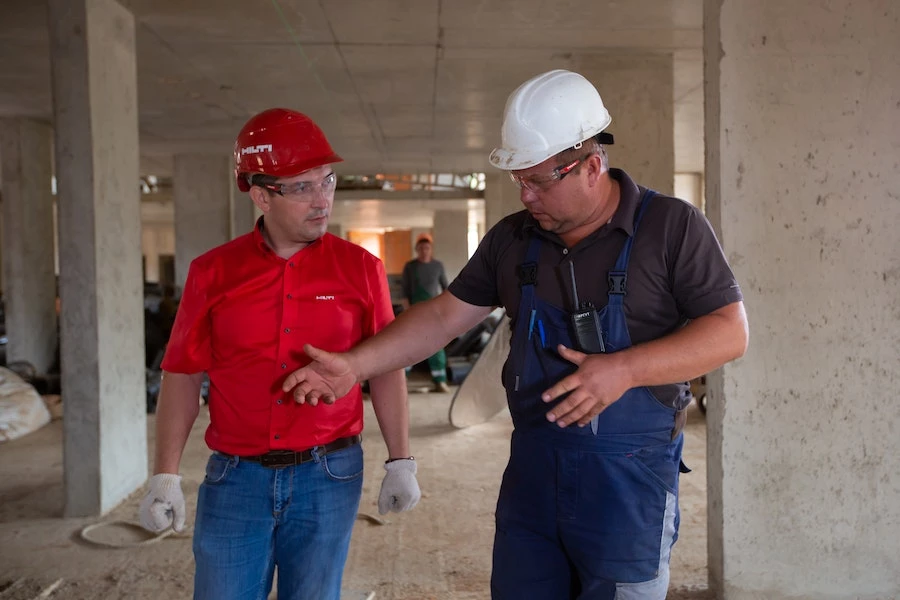There seems to be a common refrain when we discuss workplace safety. Everyone seems focused on situations in which rules are either too extreme or lacking common sense. It’s easy for people to forget why site safety training classes is so necessary.
It is a popular trend to laugh at overzealous guidelines and rules, but we often forget their critical role in protecting millions of workers across Britain from harm.
Safety and health should always be a top priority, no matter how big or small your company is. Here are seven reasons why safety and health training is essential for your business.
1. It’s The Law
Although it may seem obvious, one of the main reasons that safety and health training is so important is that it isn’t optional. It is the law. This legislation was introduced in 1974. It requires employees and employers to take reasonable and practical steps to ensure safety and health in the workplace. Moreover, regulations provide guidelines for specific industries and sectors regarding safety and health.
Many organizations can suffer severe consequences for breaking safety and health laws. The UK Government’s zero-tolerance approach to offenders continues to see fines for safety and health violations rising yearly. Fines can cause financial problems for companies and even lead to bankruptcy in extreme cases. Criminal prosecutions can also be brought against companies for breaches of safety and health, which can have devastating consequences on a company’s reputation and ability to carry out its business.
2. Every Workplace Can Be Exposed To Risk
Every workplace has its own hazards, from busy construction sites to quiet offices. Although an office space may seem safer than others, workplace hazards such as slips and trips, falls, unsecured equipment, and asbestos can pose a significant threat to safety. Employees should be aware of these potential dangers.
It is important not to become complacent about safety and health procedures. Also, remember that no workplace is completely safe . Employers should monitor, reduce and identify workplace hazards.
3. Efficiency Increases
Many people think that safety and health are tedious and time-consuming in today’s fast-paced world. But this is not true. There are many ways that safety and health can be beneficial to an organisation’s efficiency and productivity.
Most cases involving safety and health require clear language. They also need to be outlined in a step-by-step format so that tasks can be understood and clearly defined. Employees are more likely to be able complete their work efficiently and safely. Employees can also work in a safe environment, which allows them to do their job without worrying about dangerous working conditions. Workers are more productive when they work in a safe environment.
4. All Board Reduced Costs
A good safety and health training program can be a significant factor in reducing costs.
Clearer operations can increase productivity and reduce indirect costs for businesses. Streamlined operations reduce the time spent on individual tasks and increase efficiency.
The loss of workers as a result of an injury or illness at work can have a negative impact on business operations. Employers lose valuable time and resources to manage the situation and find a replacement. They also lose the employee’s knowledge, skills, and experience. Employers can reduce the likelihood of disruptions to ongoing projects or the loss of highly-skilled workers by having more employees follow good safety and health procedures.
Companies can avoid large fines by taking a firm approach to safety and health training. As the UK government tries to crack down on offenders, recent cases have seen fines for violations rise into the millions. Not only are fines high, but organisations may also be required to pay additional compensation, victim surcharges, and legal fees.
5. A Safe Company Culture Is Created
An organisation can build trust with its staff by having a strong safety and health policy. Staff who feel valued and safe are less likely to leave and have higher satisfaction with their employers. This can have a positive effect on morale as well as boost productivity.
However, information travels quickly in today’s digital age. There are many threads on the internet that discuss company values and visions. An organisation’s commitment to social responsibility can be measured by its health and safety strategy.
Prospective hires also value a safe and secure workplace culture when searching for a new job. An organisation can attract highly qualified candidates by creating a safe workplace. This can help them build a strong workforce.
6. Raises Your Profile
It is vital to have safety and health training as it can play an important role in deciding which projects an organization can bid for and how those projects are awarded. A strong track record in safety and health can help businesses achieve high standing and recognition within their industry.
A construction company that shows a commitment and adheres to safety and health regulations, and is recognized in the industry, is more likely to win high-profile contracts than one that is not.
A strong reputation is essential for any business model’s continued success. Safety and health can also be a major part of this process.
7. You Have Nothing To Lose And Everything To Gain
Although the reasons given above are all valid, they share a common theme.
Health and safety training is essential because it can unite employees and employers in pursuit of a common goal: to create a safe, secure workplace that promotes safety and success for all.
A strong safety and health policy is worth the investment. Health and safety training should not be seen as a hindrance to success, or as something to do after the fact. Instead, it should be seen as an effective, logical step that will ensure ethical, productive and high-quality business standards.

